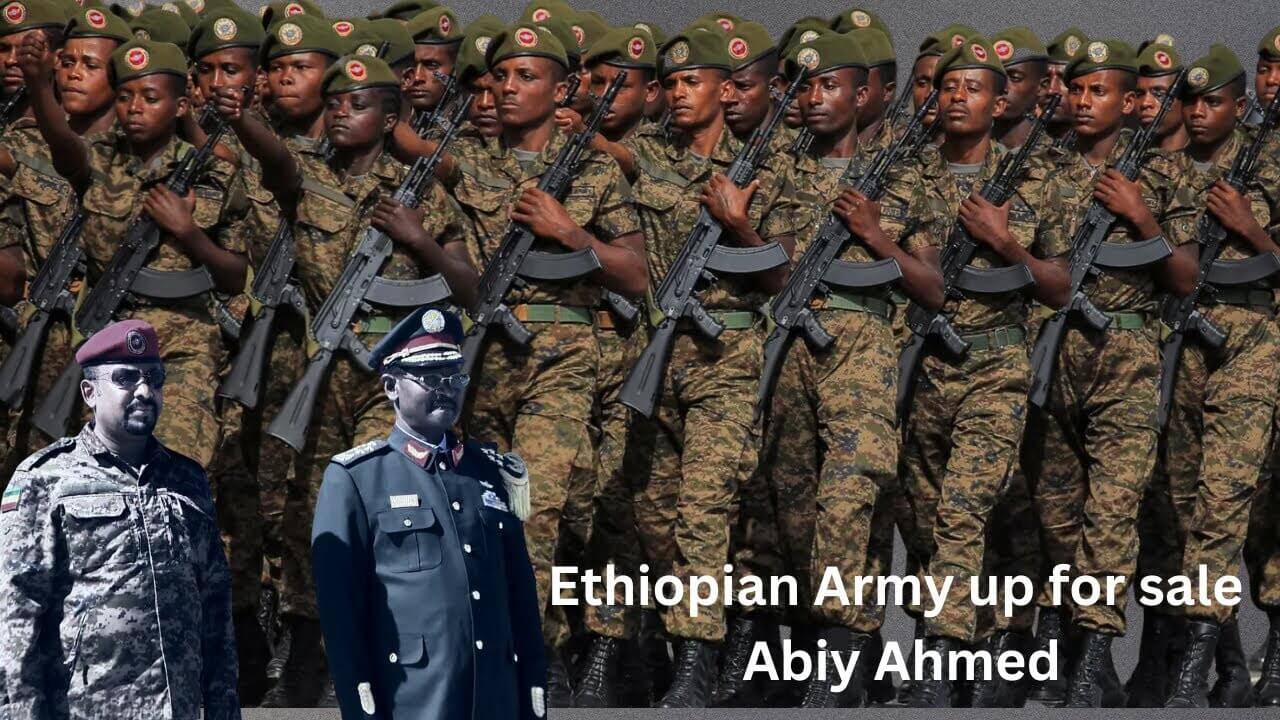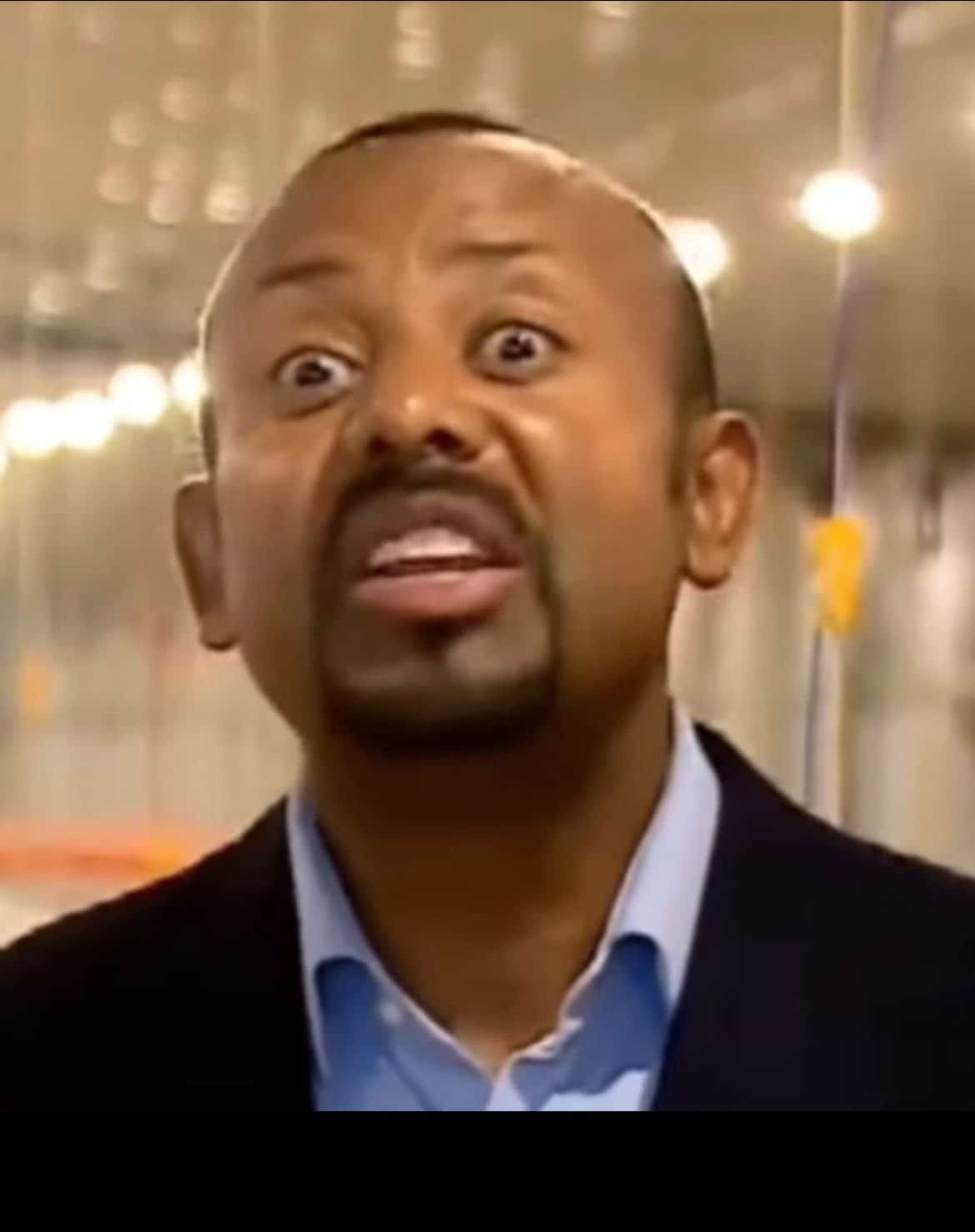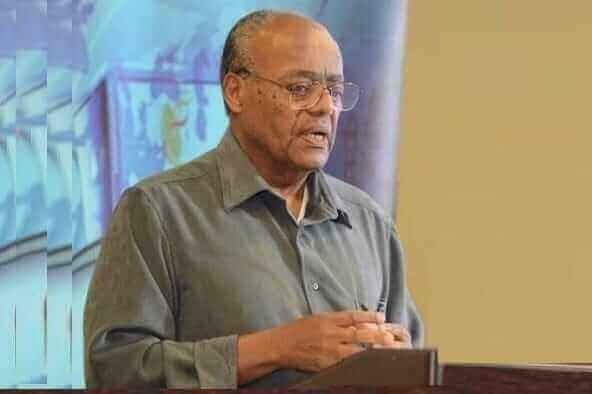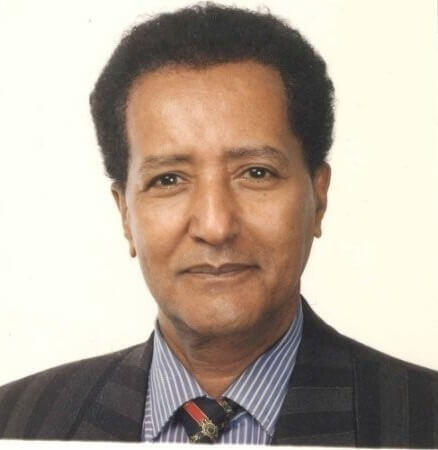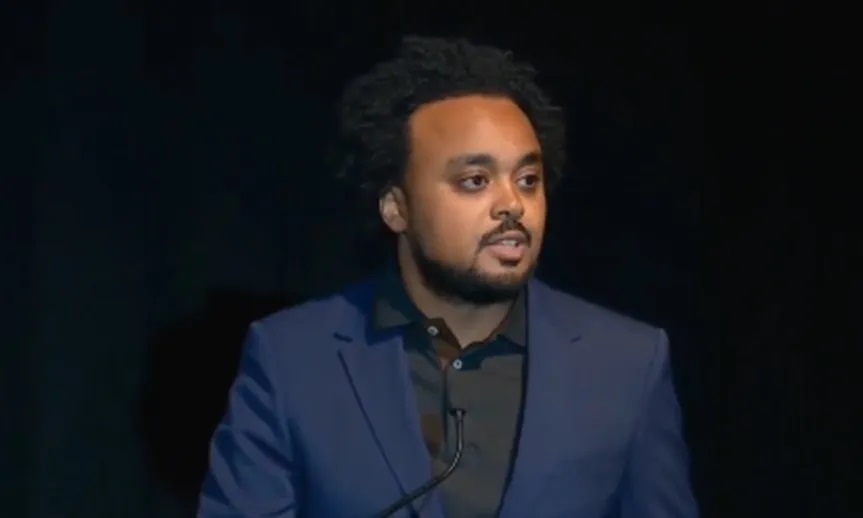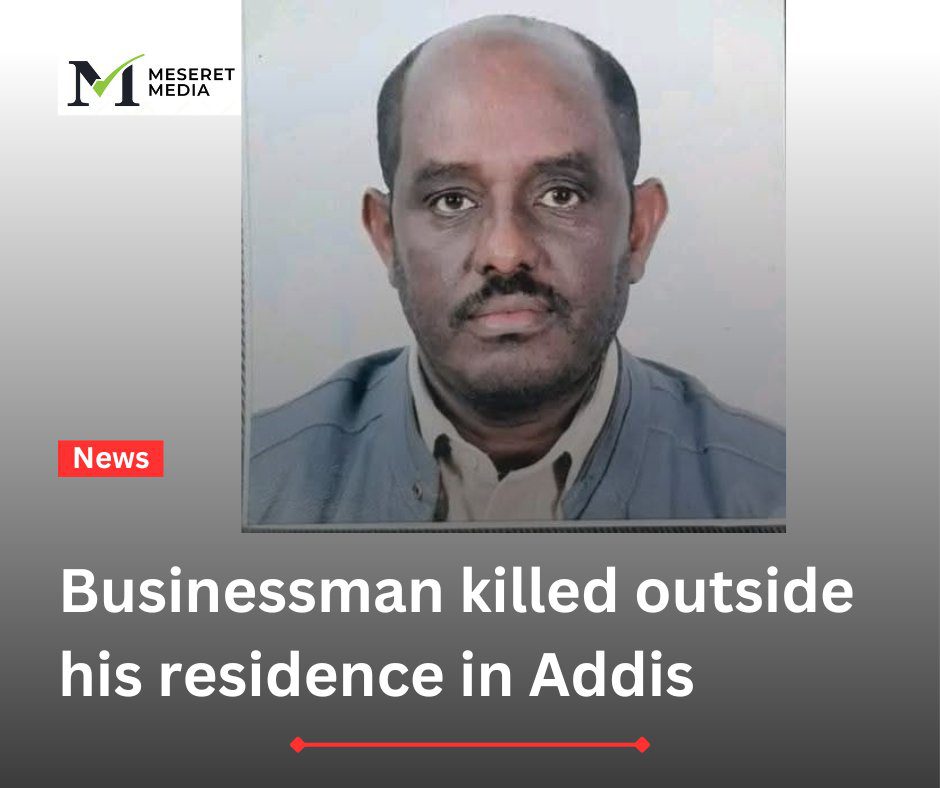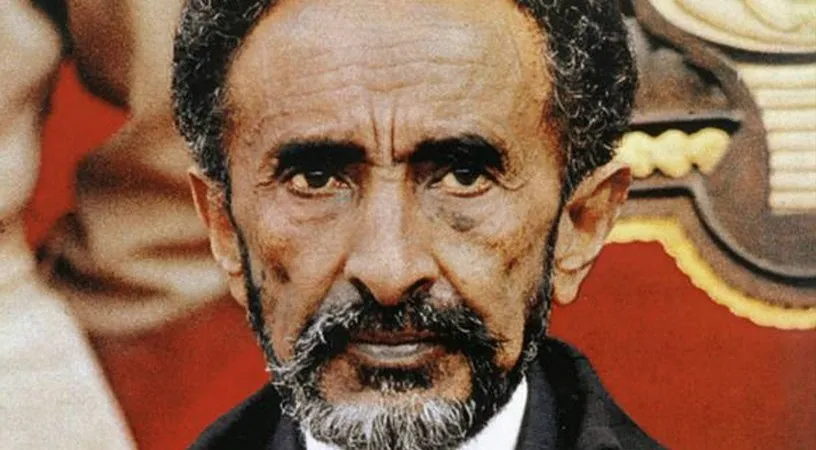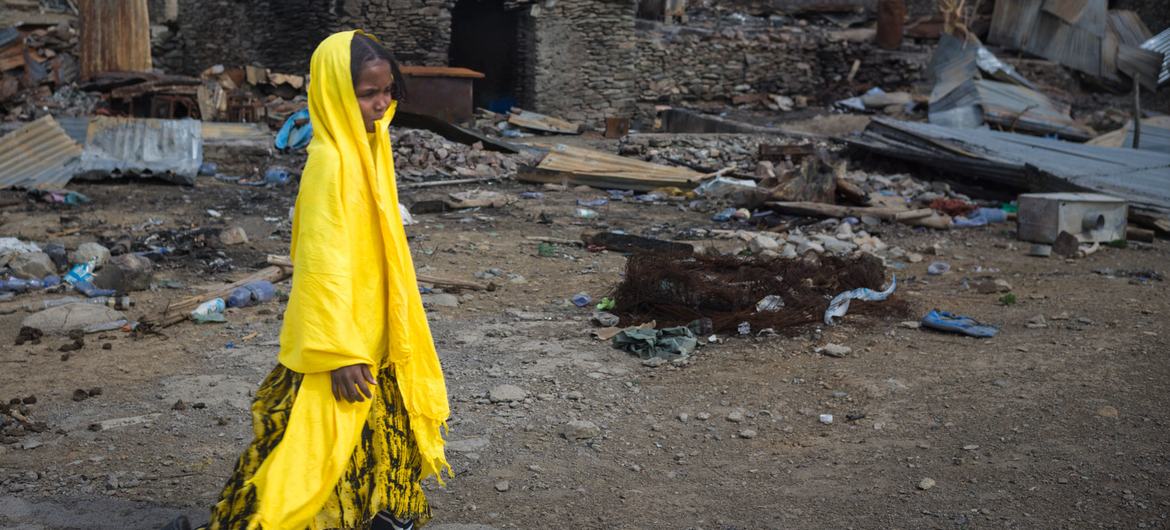(VOA) Ethiopia does not have a firm leadership succession plan if Prime Minister Meles Zenawi is no longer able to head the government, according to a former defense minister.
Seeye Abraha, who worked with Meles on the ruling party’s executive committee but who is now a member of the political opposition, said Tuesday that uncertainty and anxiety is growing over the nation’s leadership during the prime minister’s so-far unexplained absence. He blamed it on the country’s one-party electoral system and Meles’ one-man-rule style of governing over the past 12 years.
Seeye Abraha, former defense minister, in Boston, Massachusetts (Photo courtesy – Berhane Nguse)
“They don’t have a system” [of leadership succession], Seeye said. “This is a crisis situation and the dust has not settled.”
He said leaders of the ruling Tigrai People’s Liberation Front (TPLF) and larger Ethiopian People’s Revolutionary Democratic Front (EPRDF) parties had discussed a succession plan, but postponed any decisions until prior to a scheduled 2015 national election.
Meles has not been seen in public for about three weeks, even missing the African Union conference in Addis Ababa that was attended by 29 other heads of state or government. Some reports in the international press have speculated he is suffering from a serious illness and has been receiving treatment since June 26 in a Brussels hospital.
Information Minister Bereket Simon told reporters in Addis Ababa last week that a doctor has prescribed sick leave for the prime minister. Bereket assured the public that Meles is in “good and stable condition” and will return to work when he has recuperated.
“I have serious political differences with the prime minister and his party,”
Seeye Abraha, former defense minister
Bereket, however, would not identify the illness or say where the prime minister was receiving treatment.
Reliable news about the prime minister’s health has been hard to come by in Ethiopia. According to the Committee to Protect Journalists, the most recent edition of the independent weekly newspaper, Feteh, contained a report on the prime minister’s health, but that issue of the publication was confiscated by the government printing house.
Ethiopia ‘approaching the end of the one-party system’
Seeye Abraha said he does not know where the prime minister is or the nature of his illness.
“I have serious political differences with the prime minister and his party,” Seeye said of Meles and the TPLF. But he said that now is the time for Ethiopia’s political and military leaders to work with the nation to plot a peaceful way forward.
“We are approaching the end of the one-party system,” Seeye said.
Seeye was commander of the TPLF’s rebel forces and a member of the small leadership team of TPLF fighters who ousted Mengistu Haile Mariam’s Derg leadership in 1991. They then created the Federal Democratic Republic of Ethiopia. Seeye was defense minister for five years and later led planning strategy for Ethiopia’s border war with neighboring Eritrea.
“The system does not depend on one person,”
Sebhat Nega
The former defense minister said he and Meles finally parted ways over continuation of the costly two-year war with Eritrea. Meles expelled Seeye and three others from the TPLF executive committee.
Then, Seeye was thrown in jail for six years on corruption charges he says were bogus. When he got out of prison, Seeye joined the opposition Unity for Democracy and Justice Party along with a former president, Negaso Gidada.
He left Ethiopia for the United States in 2011. Seeye, 59, now lives in Boston where he recently completed graduate studies in public administration at Harvard University.
If Meles cannot lead, who will?
A member of the TPLF’s old guard, Sebhat Nega, told a VOA correspondent last week in Ethiopia that the government is functioning normally despite Meles’ absence.
“The system does not depend on one person,” Sebhat said, adding that whatever Meles’ medical issues are, the government is secure.
David Shinn, a former U.S. ambassador the Ethiopia in the 1980s, speculated last week that if Meles was aware of the need to plan for a successor, he would have had such a plan in place. He added, however, that if Meles’ health problem came on suddenly, the political fallout could be more serious.
“If this is a more abrupt situation, then it could be far more difficult,” Shinn said.
Opposition leader Seeye also warned of possible trouble, saying, any leadership transition would be difficult without Meles taking part. For the time being, Seeye said he believed a form of collective leadership was acting during Meles’ absence.
“I wish him recovery and I wish that he ends his political exit with a positive and constructive and historic note.”
Seeye Abraha
Sebhat of the TPLF said such opposition speculation was the product of “wishful thinkers” hoping to take advantage of the current situation. He also denied that Meles ruled with an iron fist, noting the prime minister’s efforts to de-centralize government rule in ethnically diverse Ethiopia over the past two decades.
“He doesn’t have any hand in the affairs of the Oromo, of the Amhara, of the Tigre, or of the Afar, et cetera,” said Sebhat. “He cannot have an iron hand. He can never be a despot.”
Does Meles rule by consensus or by fiat?
Seeye disagreed, saying that Meles has been consolidating power for years.
“Meles is not just the chief executive officer of the administration, he is the law of the courts,” said Seeye. “He could make his wishes the law of the land in a matter of hours. That’s how he has been working.”
Despite his political differences with Meles, Seeye said he hopes the prime minister will recover soon.
“I don’t celebrate the pain of another human being or the passing of another human being,” Seeye said. “I wish him recovery and I wish that he ends his political exit with a positive and constructive and historic note.”


